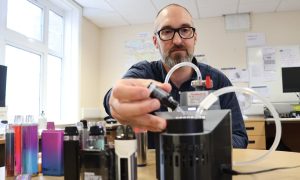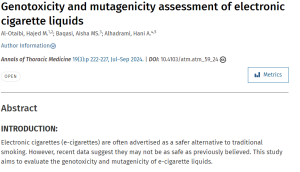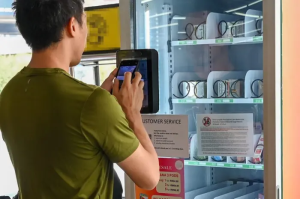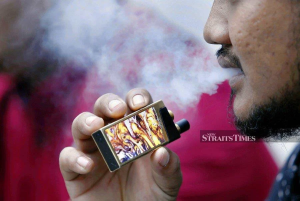WHO chief Tedros Adhanom Ghebreyesus urges all countries, including Malaysia, to protect their citizens, especially children, from e-cigarettes and vape, dismissing the tobacco industry’s claim of harm reduction with such products. “It actually is a trap.”
KUALA LUMPUR, June 3 – World Health Organization (WHO) director-general Tedros Adhanom Ghebreyesus has urged Malaysia to regulate e-cigarettes and vape, after Putrajaya legalised these nicotine products without any restrictions.
At a virtual press conference last night on global health issues, CodeBlue asked the head of the United Nations health agency if he considered Malaysia’s move to be antithetical to public health.
“When the tobacco industry introduced electronic cigarettes and vaping, one narrative they tried to really sell is that this is part of harm reduction. It’s not true,” Tedros responded at the press meet.
“It actually is a trap. And a trap, meaning, kids are being recruited at [an] early age – 10, 11, 12 – to do vaping and e-cigarettes because they think that it’s cool, because it comes in different colours, different flavours, and so on. Then, they get hooked for life.
“And most actually move into regular cigarette smoking. That’s why it’s a trap. But e-cigarettes and vaping itself [are] also harmful.
“So because of these two things, I think, what we say to all countries – please protect your citizens, especially your children.”
The WHO chief pointed out that recent studies have shown the early initiation of vaping and use of e-cigarettes, as well as advertising of such products inside or near schools.
“So it has to be regulated, and it has to be taken seriously.”
The National Health and Morbidity Survey: Adolescent Health Survey 2022 by the Institute for Public Health at Malaysia’s Ministry of Health revealed that the prevalence of current e-cigarette and vape use among Malaysian secondary school students aged 13 to 17 increased from 9.8 per cent in 2017 to 14.9 per cent in 2022.

The Control of Smoking Product for Public Health Bill 2023 – the second iteration of the tobacco bill that failed to reach a vote in the previous 14th Parliament – was not listed for first reading in the upcoming Dewan Rakyat sitting next Tuesday, according to the Order Paper.
CodeBlue previously reported that voting and passage of the tobacco and vape control bill would likely be delayed, as Cabinet has decided to have the bill sent to a parliamentary special select committee after it is tabled in the current Dewan Rakyat meeting that is scheduled to end on June 15.
A CodeBlue survey among 31 government and Opposition MPs early last month indicated that legislators were split – not along party lines, but based on personal inclinations – on the bill that contains the controversial generational end game (GEG) provision that seeks to prohibit tobacco and vape products for anyone born from 2007.
Health Minister Dr Zaliha Mustafa, in vetoing unanimous objection from the independent Poisons Board, gazetted an order last March 31 to remove liquid and gel nicotine from the list of controlled substances under the Poisons Act 1952.
This was done – before the government even tabled the tobacco bill in Parliament – to enable the taxation of e-liquids with nicotine from last April 1, as well as to enable legal access for users to e-cigarettes and vape with nicotine and for local manufacturers to produce such products legally.
Pending the tobacco bill – whose passage through the House is far from certain – e-cigarettes and nicotine vape can now be legally sold to children and teenagers in Malaysia below the age of 18.
There are also no regulations or restrictions whatsoever on advertising, promotion and sponsorship; nicotine content; flavours; sales channels; or product packaging and labelling, as Malaysia’s current tobacco control regulations under the Food Act 1983 exclude e-cigarettes and vape.
Source: Code Blue










